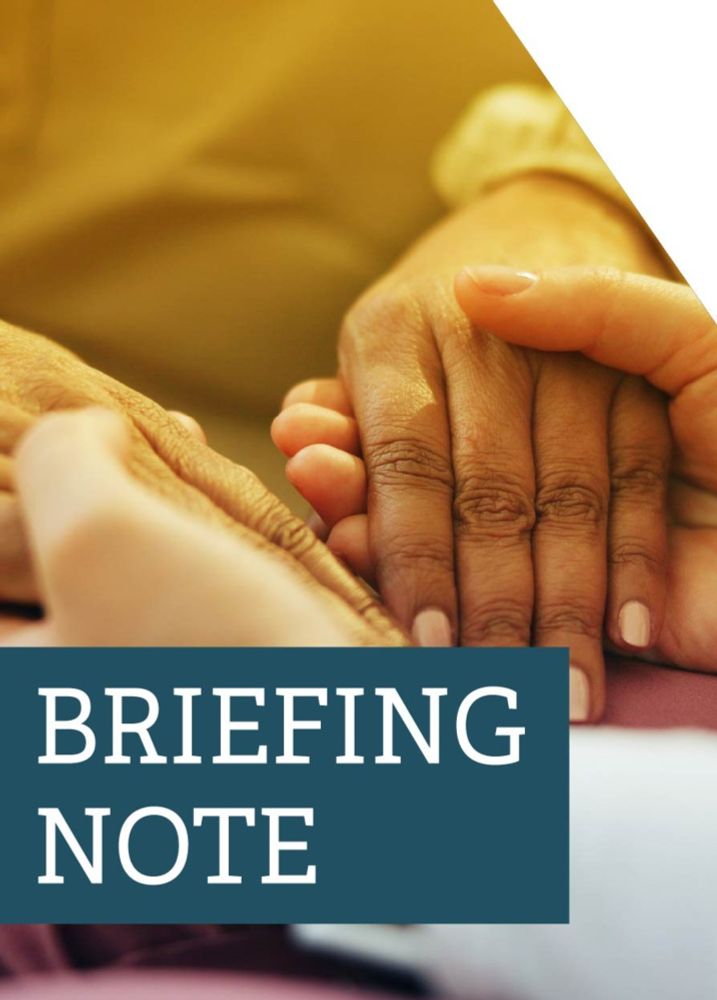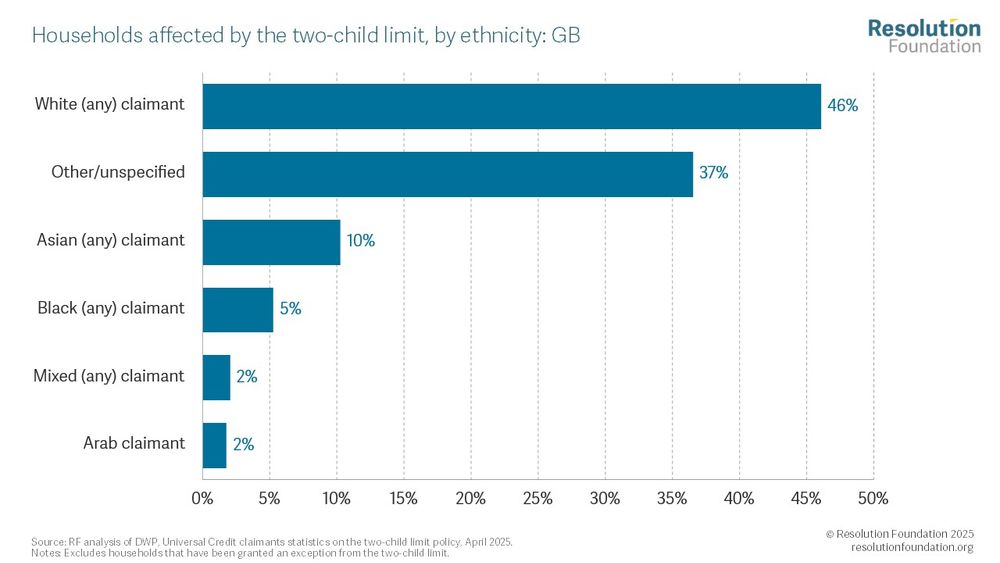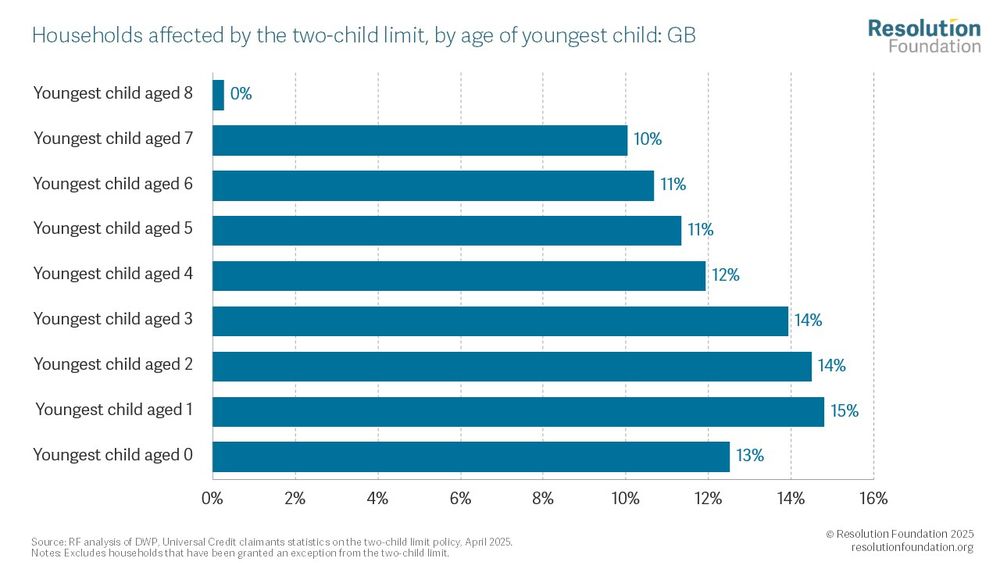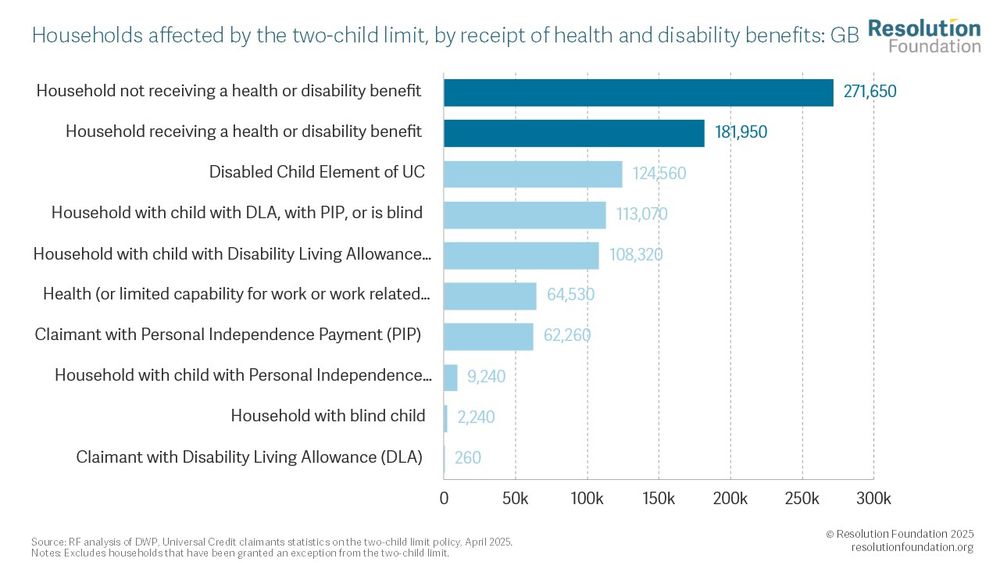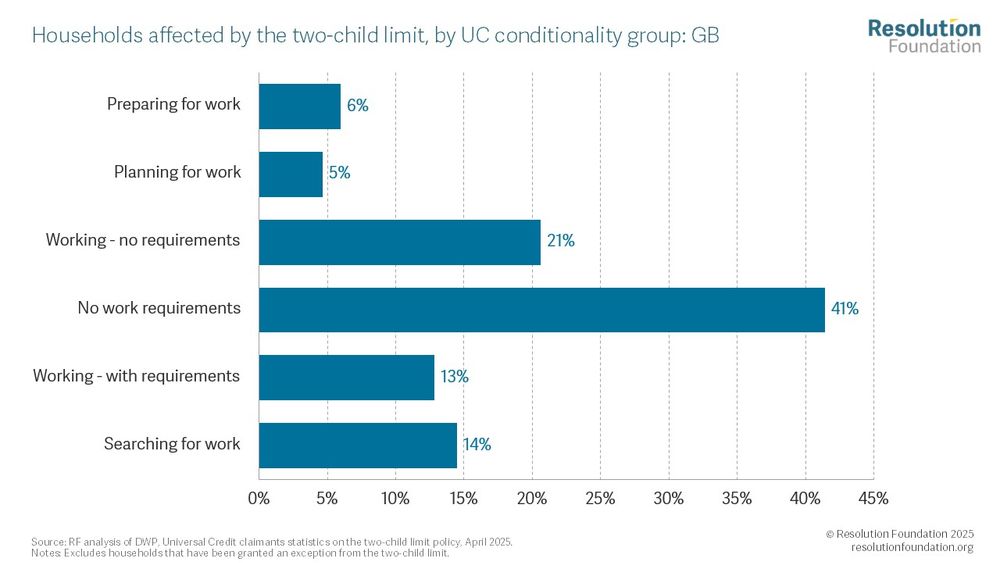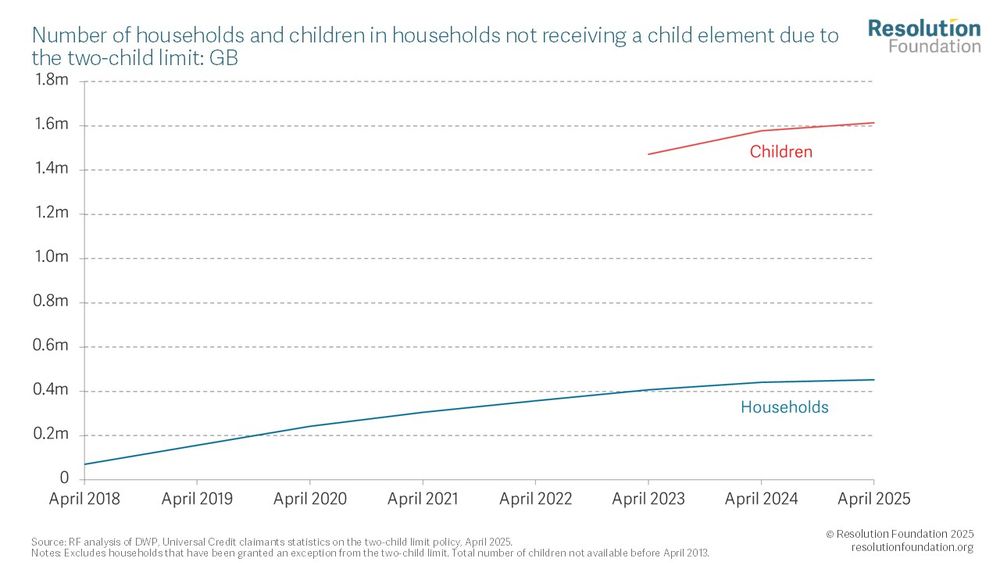Alex Clegg
@alexclegg.bsky.social
1.6K followers
1K following
230 posts
Economist at the Resolution Foundation, focusing on social security, poverty and living standards
Posts
Media
Videos
Starter Packs
Reposted by Alex Clegg
Alex Clegg
@alexclegg.bsky.social
· Jul 29
Reposted by Alex Clegg
Molly Broome
@mollybroome.bsky.social
· Jul 15
Alex Clegg
@alexclegg.bsky.social
· Jul 14
Alex Clegg
@alexclegg.bsky.social
· Jul 14
Alex Clegg
@alexclegg.bsky.social
· Jul 11




